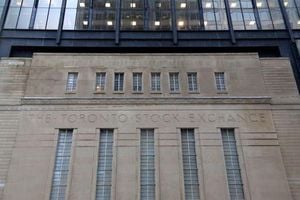Following the shocking attempted assassination of former President Donald Trump, the Senate is currently scrutinizing the funding for the Secret Service. This scrutiny extends to how much financial support the agency requires, especially with the upcoming 2024 presidential election hovering just around the corner.
Top senators, including Chris Murphy from Connecticut and Alabama's Katie Britt, who lead the Senate Appropriations subcommittee for Homeland Security, have made it clear they need to comprehend the agency's financial needs before they can finalize budget allocations for fiscal year 2025. They conveyed their concerns to the acting director of the Secret Service, Ronald Rowe Jr., stating it's "critical" to assess the agency’s requirements.
One of the primary inquiries is whether limited resources played any role in the security lapses observed at Trump's rally, where the assassination attempt occurred. The lawmakers are pressing for answers, especially as it relates to the agency’s operations during the critical period leading up to the 2024 elections. The senators outlined their specific queries, seeking clarity on whether the agency possesses any funding shortfalls for the current fiscal year, which concludes on September 30, and what additional resources could be necessary for safeguarding presidential candidates and overseeing the election process.
Just last month, the Secret Service disclosed its intent to reallocate $19 million to address some of its travel-related budget shortfalls connected to protective measures. With the assassination attempt, the agency has also taken additional measures to protect Robert F. Kennedy Jr. and several vice-presidential candidates, indicating the escalating demands on its resources.
The situation around the Secret Service is particularly complex. Notably, the Homeland Security appropriations bill is the only spending plan for 2025 yet to progress through the Senate Appropriations Committee—initially slated for advancement last month, it was unexpectedly withdrawn from consideration.
Senator John Kennedy from Louisiana, who is also on the committee, highlighted the connection between the delay of the appropriations bill and the funding questions surrounding the Secret Service. Although he acknowledged there could be various reasons for the postponement, he firmly suggested the funding issue is central.
At the recent joint hearing of the Judiciary and Homeland Security Committees where Rowe testified, senators from both political divides challenged the acting director over the agency's readiness. The dynamics of these discussions underscored the tension within government funding priorities, especially as public safety has become increasingly critical amid political campaigns.
Senate Majority Whip Dick Durbin raised valid concerns during the hearing, expressing confusion over why expenditures for the Secret Service have more than doubled over the last decade, yet the number of agents on protective detail has declined by roughly 9 percent—from 4,027 to 3,671. Rowe explained the agency’s rigorous hiring standards impede recruitment, stating only about 2 percent of applicants successfully join the ranks, which has resulted in turnover as employees are often drawn to less demanding positions in the private sector.
Despite the challenges, Rowe now projects the agency will finish 2024 with over 200 more agents than it started with, marking the first time this growth has occurred in years. This uptick may provide some relief, but many lawmakers remain apprehensive about whether the current staffing can adequately support the heightened demands.
Senator Lindsey Graham of South Carolina weighed in, advocating strongly for additional funding. "I would encourage you to think big when it comesto resourcing the department in light of what happened here," Graham urged Rowe. This call for increased resources reflects the broader expectation for the Secret Service to uphold its protective mission.
Interestingly, the conversation around Secret Service funding isn’t wholly unanimous among Republicans. Some, like House Oversight Committee Chairman James Comer, believe the current budget of $3.1 billion is sufficient, arguing it’s small compared to the agency's responsibilities. Comer recently stated on TV, "Given its relatively small size, this budget is the right amount for the Secret Service." Speaker Mike Johnson echoed similar sentiment, highlighting the agency's ability to adjust its funds as necessary.
Conversely, some senators are more cautious, needing to evaluate how the agency handles funding and personnel. Kennedy was particularly skeptical, citing internal conflicts within the agency highlighted by the assassination attempt. He emphasized, "I think if the bill had been brought up without having addressed this issue, it would have been defeated." This reflects the complex balance of opinions around federal financing and the expectations of accountability for government agencies.
Senator Josh Hawley from Missouri looked for insights on personnel reduction within the Secret Service, questioning why agent numbers have dropped as funding levels have risen. Issues like these add another layer of complexity to discussions about employee capacity and resource allocation within the agency.
Overall, this mix of urgent security concerns along with rising demands from presidential campaigning paints a vivid picture of the current climate Washington is grappling with.
With the election drawing closer, public confidence is riding on the Secret Service's ability to perform effectively and responsibly amid these heightened expectations. All eyes will be on the Senate as they navigate the balance of appropriate funding levels and ensuring the safety of future candidates as they hit the campaign trail.
Thus, it seems the discussion around the Secret Service isn’t just about numbers—it's also about the pressing responsibility to protect the nation's leaders amid rising political tensions. The senators continue to request clarity on these issues, keeping pressure on the agency as the 2024 election draws near.



